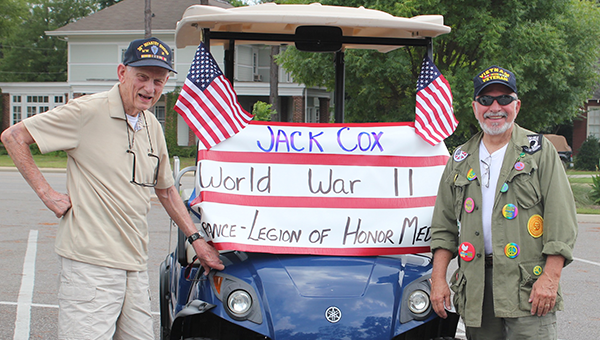Carnley family liked ruling, but still feel no peace
Published 3:11 am Saturday, September 2, 2017
Circuit Judge Ben Bowden on Wednesday resentenced Debra Bracewell to life without parole for the capital murder of Rex Carnley.
Wednesday marked 40 years, two weeks and two days since Carnley’s death. It was the third time Bracewell had been sentenced, and even though she received the sentence for which Carnley’s family members had prayed, two of his three sons said they know they cannot yet be at peace about the case.
“It’s not behind us,” said Nickey Carnley, the former Opp police chief whos name probably sounds familiar. “There will be an appeal, and we could be right back here. Even though it was forty years ago, it’s something we’re still going through.”
Nickey was 18 when his father was killed. He was talking to a Marine recruiter and planning to join the military. After his father’s death, he started considering law enforcement.
“It was like a little light bulb went off,” he recalled. “And it kept getting brighter and brighter. I wanted to help other families who might face what we faced. I hoped I could make it easier for them.”
The youngest Carnley son, Kelly, was 13 in 1977. He and his brother Murray both went to the scene and saw their father’s body. It had lasting effects, Kelly said, and not necessarily good ones. He’s the first to say that he’s had problems, but believes his life changed when he allowed God in – another important thing that happened to him in August.
“Write down that I’m a praying man,” Kelly, who works at Southeast Gas, said. “I was praying for God’s will, even if it didn’t come out the way we wanted it. I prayed for my family, and I prayed for her family and friends, because they lost somebody too. And I prayed for the judge.”
Nickey Carnley said the resources available for victims and their families now were almost unheard of in 1977.
“I was able to let my father’s death affect me in a positive way,” he said. “For my younger brothers, it was harder.”
They found themselves reliving the trauma again this week because the U.S. Supreme Court ruled that sentencing a juvenile to life without parole was cruel and unusual punishment, except in the most extreme cases. The ruling – and a subsequent one making the decision retroactive – has reopened countless cases. Because the SCOTUS decisions did not specify what “extreme cases” are, Nickey thinks cases like Bracewell’s in which the defendant is resentenced to life without parole will be appealed until the high court gives a better definition of “extreme.”
By all accounts, Bracewell had a horrible home life before she took up with the man she would eventually marry, Charles Bracewell, who also was convicted in Carnley’s death.
“I feel deep compassion for you, ma’am,” Bowden said as he sentenced her. “Your home life was horrible, and you fell in with a bad man. But those difficulties, as terrible as they were, in mind to do not provide any special protection from your actions in taking the life of another human being.”
Unfortunately, the ruling doesn’t end the story for either family, both of whom will likely relive the trauma again in another courtroom on another day.
Michele Gerlach is publisher of The Star-News.



